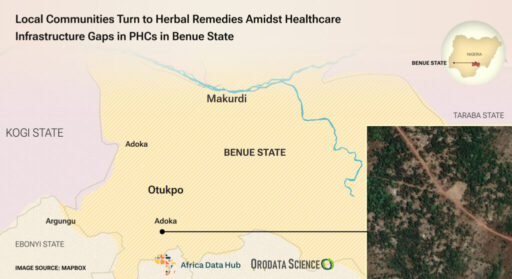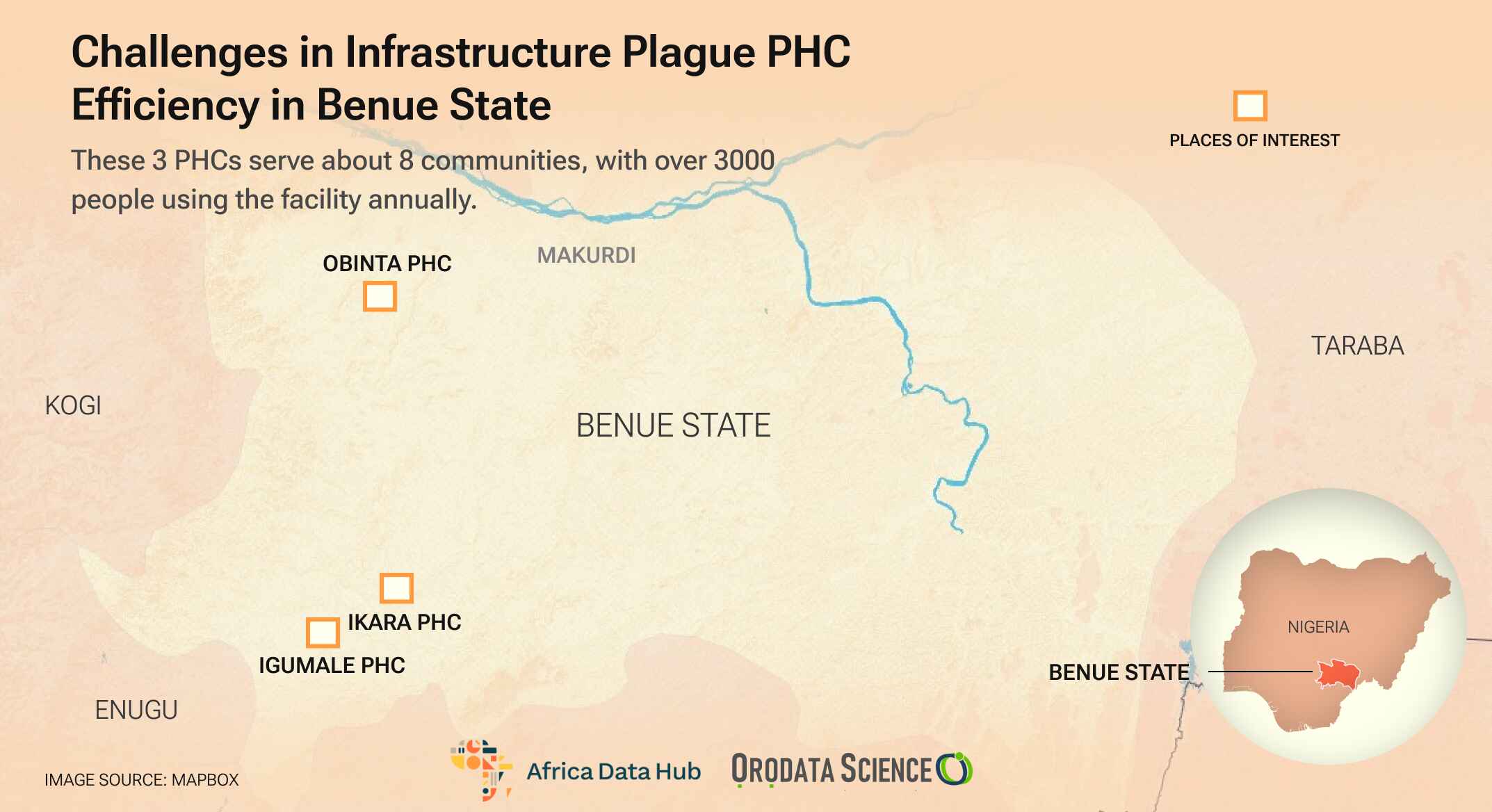Overcoming Infrastructural Challenges: Enhancing Primary Health Care in Benue State
Hannah N.
6 min read . Jul 8, 2024
By David Arome
Despite being the first point of contact for local communities, primary healthcare clinics (PHCs) in Benue State grapple with notable deficiencies in basic infrastructure, hindering their ability to effectively meet the health needs of the people. These substantial gaps have triggered an increase in the demand for services at secondary and tertiary healthcare facilities, giving rise to prolonged queues and extended waiting times, and worsening the health conditions of patients.
The 2024 budgetary provision for the health sector in the state has been jacked up to15%, which is highly commendable by the Nigeria Medical Association as a way forward to efficient healthcare delivery in the state.

Enewa Peter, a 32-year-old farmer residing in Ikara community, Ado LGA, Benue State, expressed deep dissatisfaction with the inadequate infrastructure at the local primary healthcare clinic On the morning of Saturday, September 16, 2023, Enewa and her family embarked on a journey to their farm to begin harvesting their crops.
“Despite experiencing a fever during her pregnancy,” Enewa had attempted to manage it with local herbs. Unfortunately, the symptoms persisted. While harvesting, she unexpectedly went into labour, prompting a rush to the nearby primary healthcare clinic with the hope of safe delivery.
Upon arrival, it was discovered that the health facility had been devoid of essential child delivery tools for weeks. Additionally, there was a shortage of space and healthcare personnel, with only one government-employed staff member managing the facility. Enewa endured agonizing labour for hours until her family sought for a vehicle to take her to a secondary health facility at Igumale.

“The prolonged pain and psychological trauma led Enewa to fall into a coma during transit.” At the Igumale General Hospital, the doctors and nurses worked tirelessly to revive her. Although she eventually regained consciousness, the heartbreaking outcome was the loss of her baby. Overwhelmed with grief, Mrs Peter wept inconsolably, her dream of becoming a mother after a five-year wait shattered.
According to her “The primary health care should be prioritized as a greater proportion of the residents domiciled in rural communities in the state.”
Many others within and in other communities, face various health challenges, similar to what Mrs Peter experienced.
Mama Ochaiya a resident of Obinta community in Apa LGA, expressed deep concern about the deplorable condition of the health clinic outpost. The facility is marked by a severe shortage of healthcare personnel, insufficient medical supplies, and inadequate space to effectively address the community’s basic health needs.
Currently, the health outpost clinic is managed by a single individual, who is consistently overwhelmed with the workload. This staff shortage prevents the healthcare outpost from operating round the clock, creating a significant service gap.
Furthermore, the clinic regularly experiences stockouts of essential medicines and drugs. Whenever I visit the facility, I am never able to obtain the required medications and am compelled to purchase them from a nearby chemist store. This situation underscores the critical need for urgent attention and improvements in the healthcare services provided to the community.
It is surprising to note that even basic medications like paracetamol are unavailable at the health facility. The situation is disheartening, and it consistently stops me from seeking medical assistance at the facility when I am sick. In my perspective, it is accurate to assert that the existing health facility does not meet the community’s expectations, to the extent that I am inclined to say there is practically no functional health outpost in this community.
John James, a lecturer at the Federal College of Education at Obinta community, Apa LGA shared a similar experience as Mama Ochaiya. I hardly visit the healthcare outpost as there is barely anything to offer me as it relates to my basic healthcare needs. The health facility is often deserted of drugs and health personnel, and there is a prolonged absence of the only health personnel assigned to the facility.
This has made the community members patronize the private health facility more. The private health facility takes advantage of these lapses to charge exorbitant charges. James further said that the sorry state of the health facility calls for serious concern as locals are further exposed to health risks.
“The majority of the locals here in the community are farmers who rely so much on the PHC for their health needs, but this turns out to be the opposite” James noted.
A Clarion Call for Action
Mary Elaigwu overseeing the PHC facility at Igumale, Ado LGA has confirmed the significant infrastructural deficiencies at the primary healthcare clinics (PHCs), adversely impacting the facility’s optimal functionality. “Within this health facility, there is a shortage of space, rooms, beds, and staff, insufficient to meet the health needs of the community”. To cope with these challenges, I have to seek additional support from volunteers, such as community health extension workers from the community. “Currently, there are only two government-employed staff members at the facility, while the remaining personnel are volunteers.
“These obstacles present significant challenges to achieving optimal service delivery, as PHCs are known to be the initial point of contact for residents in the community,” Elaigwu added.
Similarly, Mr Godwin Okpe, the in charge of Onuebojigban health outpost expressed dissatisfaction with the prolonged neglect of the health facility. “The health outpost consists of just a single room, grossly inadequate for carrying out essential healthcare functions to meet the demands of the local population,” Okpe noted.
“Despite my efforts, as the only employed government staff alongside volunteers, the shortage of personnel remains overwhelming.” Furthermore, drug supplies are deficient to the facility, which have not been restocked for several weeks. This impedes services, forcing residents to seek drugs from private chemist stores or resort to herbal formulations. These contributing factors significantly hinder the optimal functionality of the health facility, particularly in remote and hard-to-reach communities.
He further advocates for enhanced budget allocations to the healthcare sector, particularly at the primary level to upscale the functionality of the PHCs at the grassroots.
Credit Statement: This story was produced for the Frontline Investigative Program and supported by the Africa Data Hub and Orodata Science
Related Posts

State Government Accused of Extorting PHCs: Allegations and Impact Unveiled.
Jul 8, 2024
5 min read

Healthcare Challenges in Anambra: PHCs Operating in Gatehouses and Rented Rooms in Churches and Homes.
Jul 8, 2024
13 min read






